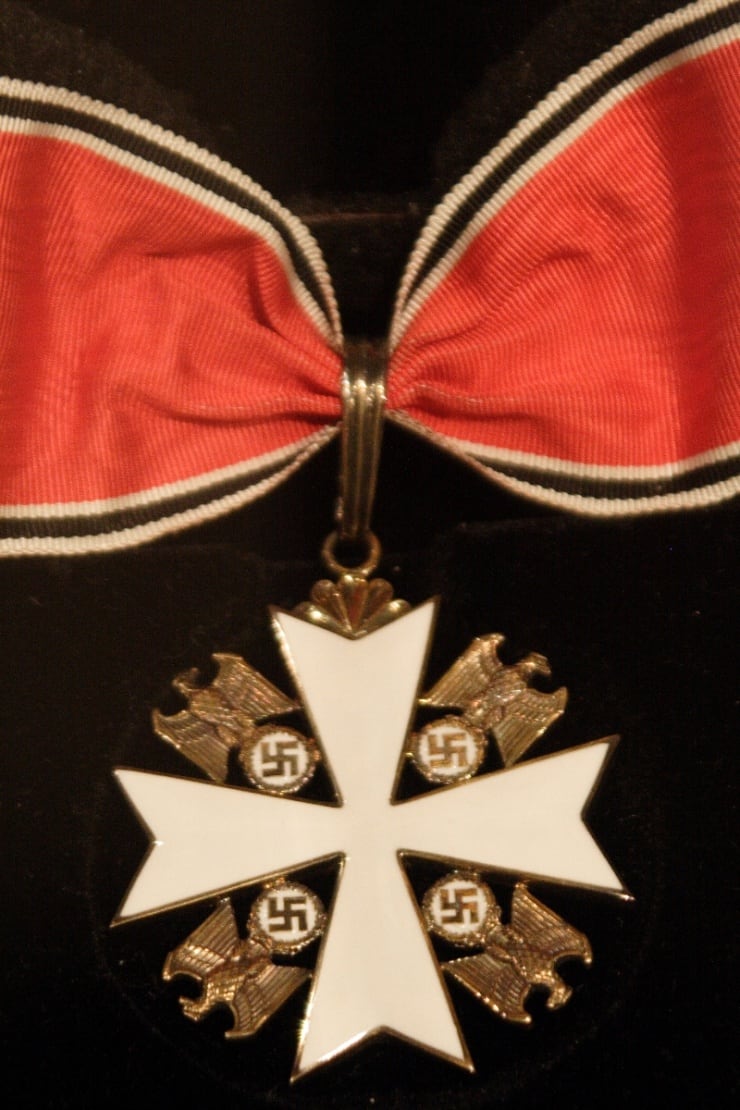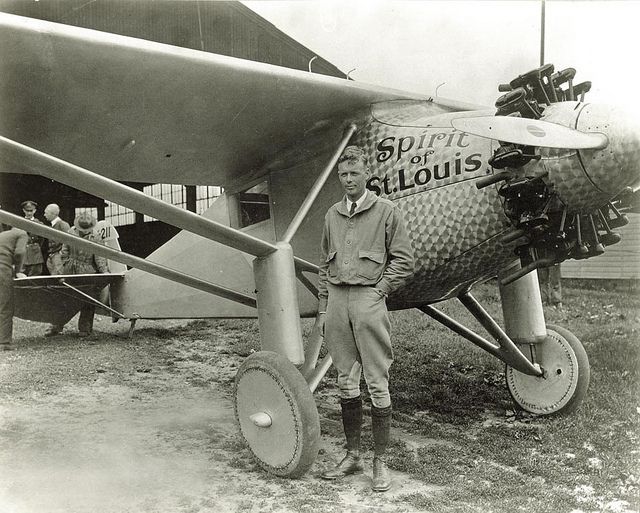4.2.1902 - Charles Lindbergh
Categories: Personalities , Calendar
Charles Augustus Lindbergh, Jr. (February 4, 1902 - August 26, 1974) was an American aviator who was the first to fly solo across the Atlantic Ocean. Lindbergh was born in Detroit, the son of Swedish immigrants. From his youth, he was drawn toward airplanes. In 1922, as a newly graduated mechanical engineer, he signed up for training with Nebraska Aircraft.
After training, he bought his own plane from an army supply sale and took up aerial stunt flying. In 1924, he trained for the United States Army Air Service, and upon graduation he joined the Robertson Aircraft Co. as chief airmail pilot. Here they flew in all kinds of weather and the pilots tried to deliver mail on time even at the risk of their own lives.
Flying mail on the Sprigfield-Peoria-Chicago route, he gained experience for the great flight of his life. He was the first solo aviator to fly nonstop across the Atlantic Ocean in 1927. With his single-engine Spirit of st. Louis took off on the 20th. After 33.5 hours of flying, battling bad weather, fatigue, and nearly scraping the surface of the sea while half asleep, he landed in Paris in the evening. He was greeted enthusiastically by a crowd of many thousands, the souvenir hunters had a bit of a brush with his plane, he lost his balaclava, his aviation diary and had a very difficult time getting out of the embrace of the enthusiastic crowd. For his flight he received the Legion of Honour in France, and on his return to the USA, in addition to a $25,000 bonus, the Distinguished Flying Cross.
The public significance of his flight was so great that Lindbergh's opinion served as a universally accepted one in the development of aviation until his death.
His flight kick-started a meteoric rise in the aviation industry, with manufacturers looking to push the range and availability of new aircraft. From a stunt attraction for the public, aviation became a modern means of transportation. In 1929, Lindbergh was awarded the U.S. military's highest decoration, the Medal of Honor. His great popularity had its downsides, however; in 1932, his two-year-old firstborn son Charles was a victim of kidnapping. After a ten-week search, his body was found dead, having fallen off a ladder during the kidnapping. Due to intense media pressure, he moved to Europe, living alternately in England and Brittany.
Before the Second World War, Linberg undertook an inspection tour of Europe to report on the German aircraft industry and in particular the development of the Luftwaffe. He also visited the Soviet Union.
In 1938, Göring decorated Lindbergh with the Order of the German Eagle for his services to aviation and for his pioneering 1927 flight. This provoked strong protests in the US, but Lindbergh claimed he accepted the order so as not to offend his hosts. He returned to the US immediately after the outbreak of war.
Lindberg wrote a secret memo to the British in which he made it clear that if Britain and France tried to stop Hitler's aggression, it would be their military suicide.Lindbergh had nothing against Germany going to war with the Soviet Union, let the Nazis and Communists fight it out, he was definitely against war in the West.
After the outbreak of war in Europe, Linberg became a vocal advocate of a policy of non-interference and a spokesman for the anti-war committee America First. In a speech on September 11, 1941, he identified three groups pushing the U.S. into war-President Roosevelt and his administration, the British, and the Jews who controlled America with their influence in the media and government. This speech drew harsh criticism, and Lindbergh decided to resign all positions in the Army and Air Force. After the Japanese attack on Pearl Harbor, he tried to return to the Air Force, but his request was denied.
He eventually made it to the Pacific battlefield as a civilian consultant to aviation companies, participating in range improvements on the Lockheed P-38 Lightning and demonstrating carrier takeoffs on the Corsair. He participated in approximately 50 black combat sorties and scored one kill. After World War II, he worked as a consultant for the USAF and PanAm. He died in 1974 on the Hawaiian island of Maui.



Jindrich Krejci - Pilotk
Pilot Detectors
The article is included in categories: